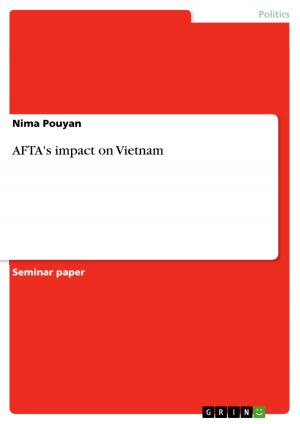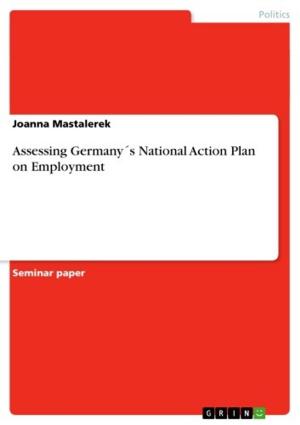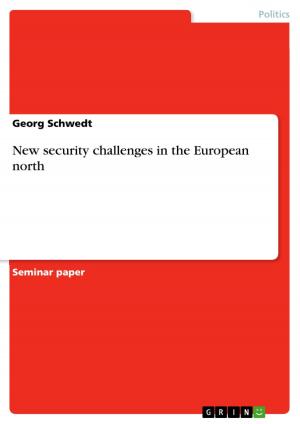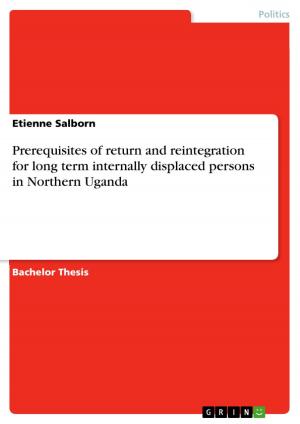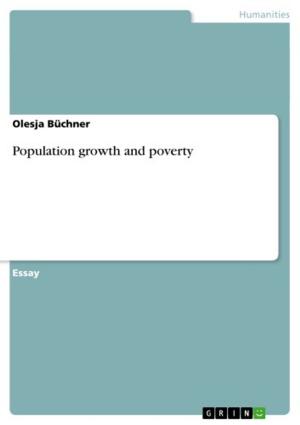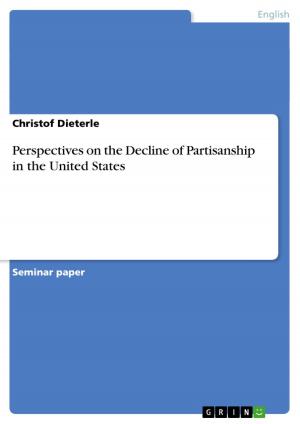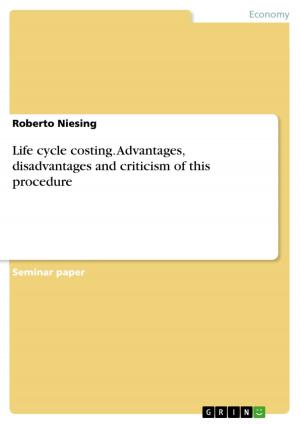Is a pan-Islamic foreign policy possible? What are the possible obstacles and what might facilitate its emergence?
Nonfiction, Social & Cultural Studies, Political Science, International, International Relations| Author: | Peter Tilman Schuessler | ISBN: | 9783638157544 |
| Publisher: | GRIN Publishing | Publication: | December 4, 2002 |
| Imprint: | GRIN Publishing | Language: | English |
| Author: | Peter Tilman Schuessler |
| ISBN: | 9783638157544 |
| Publisher: | GRIN Publishing |
| Publication: | December 4, 2002 |
| Imprint: | GRIN Publishing |
| Language: | English |
Essay from the year 2002 in the subject Politics - International Politics - General and Theories, grade: 17 von 20 (A), University of St Andrews (Department of IR), course: IR 1006, 30 entries in the bibliography, language: English, abstract: We have to look back to the year 750 AD, the end of the Omayyad Caliphs 1, to see the 'Islamic world' acting as an united power. The probability of an emergence of a pan-Islamic foreign policy is to be discussed in this essay, which means a foreign policy that involves all Muslim countries and allows them to speak with one voice. Joint policy aims can only be formulated when the interests differ just slightly. The Islamic countries however have few common goals. Firstly this essay will discuss economic, and secondly political and cultural factors. Thirdly the structure of the states will be considered, and finally religious influences will be evaluated. It will be shown that obstacles impeding a collective foreign policy outweigh the driving forces in its favour by far. Economic issues regularly have a strong impact on foreign policy strategies. The interlinkages between the areas of politics and economics are often so complex, that even one major common aim of two states might not be enough to produce a consensus between them on one policy programme. There might be joint interests like issues concerning oil if we talk about Indonesia and Kuwait, for instance. The differences in their goals, however, are too great to bring them together. Kuwait is rich and tries to retain its wealth, while Indonesia struggles with economic difficulties, inflation and local uprisings. The archipelago depends on the support of the world bank while the Kuwaitis do not know any problems of that kind. Nevertheless there are attempts to combine several nations' economic interests with one another. OPEC, while not all of its member have an Islamic population (although its most influential and powerful ones do), is a fine example of how international co-operation might work. All participants of that organisation produce oil, and they founded this alliance to raise the world oil price by organised behaviour 2. History shows that this was quite effective in the beginning. Yet this is not enough to be optimistic to create promising prospects for a pan-Islamic co-operation. Since Venezuela has a Christian population, not all OPEC states are Islamic; the organisation can therefore not be seen as a fine prototype for a purely Muslim alliance. Additionally the development of OPEC continued less successfully - in terms of forming a combined foreign policy strategy - than it began.
Essay from the year 2002 in the subject Politics - International Politics - General and Theories, grade: 17 von 20 (A), University of St Andrews (Department of IR), course: IR 1006, 30 entries in the bibliography, language: English, abstract: We have to look back to the year 750 AD, the end of the Omayyad Caliphs 1, to see the 'Islamic world' acting as an united power. The probability of an emergence of a pan-Islamic foreign policy is to be discussed in this essay, which means a foreign policy that involves all Muslim countries and allows them to speak with one voice. Joint policy aims can only be formulated when the interests differ just slightly. The Islamic countries however have few common goals. Firstly this essay will discuss economic, and secondly political and cultural factors. Thirdly the structure of the states will be considered, and finally religious influences will be evaluated. It will be shown that obstacles impeding a collective foreign policy outweigh the driving forces in its favour by far. Economic issues regularly have a strong impact on foreign policy strategies. The interlinkages between the areas of politics and economics are often so complex, that even one major common aim of two states might not be enough to produce a consensus between them on one policy programme. There might be joint interests like issues concerning oil if we talk about Indonesia and Kuwait, for instance. The differences in their goals, however, are too great to bring them together. Kuwait is rich and tries to retain its wealth, while Indonesia struggles with economic difficulties, inflation and local uprisings. The archipelago depends on the support of the world bank while the Kuwaitis do not know any problems of that kind. Nevertheless there are attempts to combine several nations' economic interests with one another. OPEC, while not all of its member have an Islamic population (although its most influential and powerful ones do), is a fine example of how international co-operation might work. All participants of that organisation produce oil, and they founded this alliance to raise the world oil price by organised behaviour 2. History shows that this was quite effective in the beginning. Yet this is not enough to be optimistic to create promising prospects for a pan-Islamic co-operation. Since Venezuela has a Christian population, not all OPEC states are Islamic; the organisation can therefore not be seen as a fine prototype for a purely Muslim alliance. Additionally the development of OPEC continued less successfully - in terms of forming a combined foreign policy strategy - than it began.
